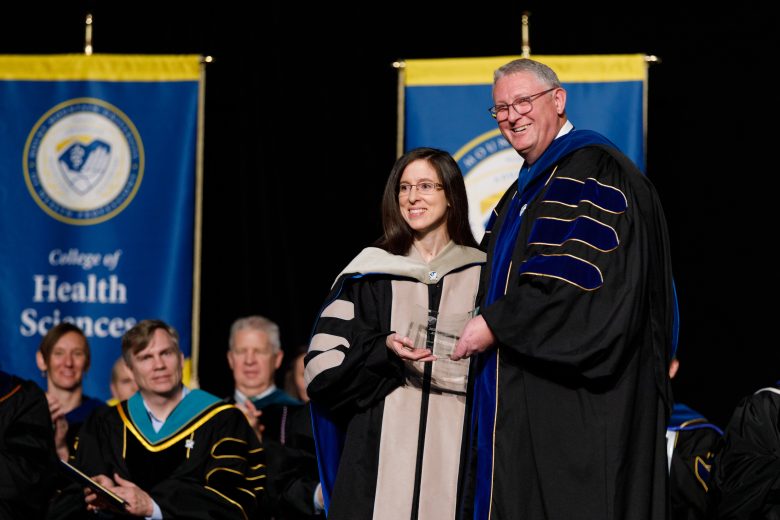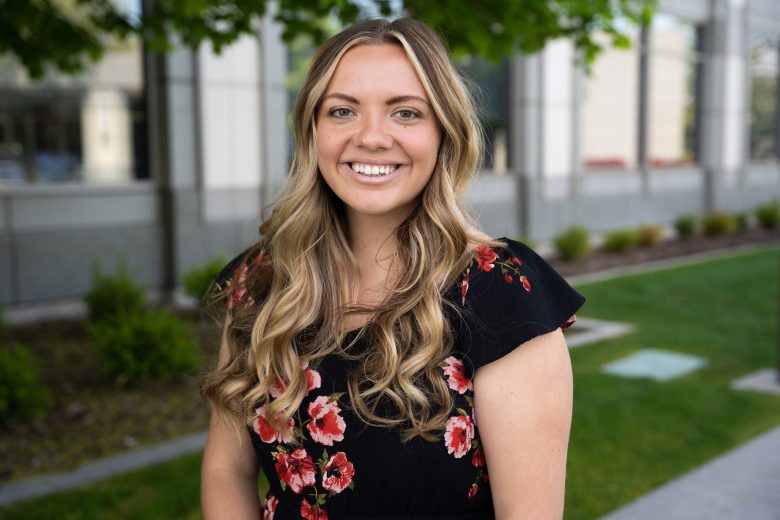 Sherlonda Adkins, PA-C, a student in the Doctor of Medical Science (DMSc) program at Rocky Mountain University of Health Professions (RMUoHP), is involved in many aspects of healthcare, education, and advocacy. Not only is she managing her own telepsychiatry practice, providing patient care, and working toward her doctoral degree, she also mentors potential physician assistant (PA) students, trains current PA students, lectures at her alma mater, writes and records self-help tips on social media (@psychmyway), consults with others interested in telemedicine, and advocates for black healthcare providers.
Sherlonda Adkins, PA-C, a student in the Doctor of Medical Science (DMSc) program at Rocky Mountain University of Health Professions (RMUoHP), is involved in many aspects of healthcare, education, and advocacy. Not only is she managing her own telepsychiatry practice, providing patient care, and working toward her doctoral degree, she also mentors potential physician assistant (PA) students, trains current PA students, lectures at her alma mater, writes and records self-help tips on social media (@psychmyway), consults with others interested in telemedicine, and advocates for black healthcare providers.
In 2020, Adkins started leading the Black PAs of South Carolina group, a group that was “started in response to the injustices we saw in 2020 and to make a safe space for black providers to share ideas, vent, and provide support for one another,” said Adkins. The group also focuses on supporting Black PA students in South Carolina.
Adkins shared an example of the importance of diversity among healthcare providers. “I was recently speaking with a group of students and one of the students was a young Black male who said he was seeing a therapist…But the problem was that he was dealing with how he was being viewed in society; for example, going for jogs and seeing people clutch their purse or moving over, that sort of thing, and so he wanted to talk to his therapist about it. But his therapist, who was not Black, couldn’t relate because the only thing she could say was ‘gosh, I know that must have felt bad,’ and she couldn’t really give him any other tools or suggestions on how to handle that,” said Adkins.
Adkins added, “If you have just one segment of the population that’s coming up with all the treatment plans and only seeing a certain type of patient, then you’re going to be limited. I believe that cultural competence comes out of having a diverse healthcare team.” She explained that a diverse healthcare team allows more people to be reached. “I’ve seen where patients have been relieved to see a Black provider and say, ‘I felt better when I saw you because you can relate to some of the things that I may be talking about,’” said Adkins.
Because of the history of racism toward Black people and the continued racism seen today, Adkins explains that “So many Black people are dealing with undiagnosed post-traumatic stress disorder (PTSD) as a result of traumas we have experienced in our lives.” Because of that racism, she has seen patients exhibit a wide variety of PTSD symptoms, even leading to reckless or self-destructive behavior.
She explained that currently, psychiatric diagnostic criteria does not include racially-induced PTSD, but she hopes that “in the future, we will have people sitting at the table who represent these populations and can advocate for the addition of this and similar legitimate diagnoses and targeted and comprehensive treatment plans that involve empathy and healthcare providers who are equipped to address trauma-related racial injustices. In these cases having a provider who is in the same boat helps.”
With February being Black History Month, Adkins reflects on how the modest emphasis on Black history during the shortest month of the year does not do justice to celebrating Black history. Rather, she celebrates Black history throughout the year as she sees the achievements of Black athletes, of new and prominent Black politicians, and the acceptance of Black culture and pride in everyday life. She adds, “To celebrate Black history I don’t even have to look beyond my household, seeing my daughter at age 16 make history as the youngest student ever accepted to the Medical University of South Carolina’s Doctor of Pharmacy program.”
Adkins remarked, “I am happy that I am comfortable in freely expressing my ‘blackness,’ especially as that wasn’t always taught when I was growing up and learning how to assimilate to be successful in a white-male dominated professional world.” So she focuses her efforts on helping others through holistic patient care and providing support to diversity initiatives to help those in her local and professional communities.



